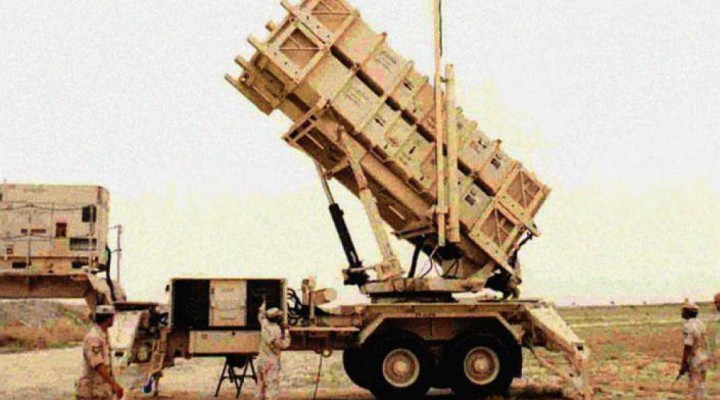The Curse of the ‘Patriot’

Will those missiles work any better against Russia than they did against the Houthis?
Ukrainian president Volodimir Zelensky returned from his flying visit to Washington with a financial and military aid package worth around $50 billion, including Patriot air defence missiles. That brings the amount of US aid to Ukraine to some $100 billion in the ten months since the war began.
The Patriots may prove to be no more successful at changing the course of the war than the HIMARS surface-to-surface missiles that were supplied with much fanfare earlier this year.
Zelensky’s speech to Congress was reminiscent of the one Benjamin Netanyahu gave when he went over the head of the Obama administration during its last days in office. That worked out badly for both sides. Netanyahu was later ousted from office, and the US got entangled in a very serious crisis and strategic confrontation with Iran when the Trump administration withdrew from the JCPOA nuclear agreement.
So, will Zelensky suffer from the same twin curses: the curse of the Congressional address filled with standing ovations, and the curse of the Patriot? The denial of those missiles to other allies prompted Turkish President Recep Tayyip Erdogan to turn to Moscow to buy its superior S-400s as an alternative, and Saudi Arabia’s Prince Muhammad Bin-Salman to trash a 75-year-old strategic partnership with the US (oil for protection) and turn to China and Russia and the new world order they are forging. The reception laid on for President Xi Jinping in Riyadh earlier this month, including summits with Gulf and Arab leaders and the signing of wide-ranging security and economic agreements, was maybe an early response to the Biden administration’s withdrawal of its Patriot and THAAD systems from Saudi Arabia.
President Putin wasn’t too worried about the Patriot deal with the Ukrainian army. He made fun of the missiles, describing them as old and of limited effectiveness. He noted how in the Yemen war they failed to intercept Houthi ballistic missiles that targeted Saudi Arabia’s capital and struck the nerve centres of its oil industry, forcing it to slash production for months.
Putin may learn some things from the Houthis, or resort to their Iranian allies who supplied them with their missile and drone technology, to shatter the Patriot myth. The US administration is now fretting about the possibility of Russia acquiring Iranian-made missiles in addition to the drones that have wreaked such havoc in Ukraine.
The Ukraine war is set to enter a new stage in the weeks and months ahead. The commander of the Ukrainian army worries that Russia is massing forces to launch a major offensive from the Donbass to the east or south, or a second attempt from the north to take the capital Kyiv. He told his NATO counterparts that 200,000 additional soldiers had been recruited and trained for the purpose to avoid repeating the mistakes that thwarted the initial attempt at the start of the war — mistakes that led to the commander of Russian forces being replaced by Gen. Sergei Surovikin, a veteran of the Syrian and Chechen wars.
Putin keeps his cards close to his chest regarding the Ukraine war, but his recent remarks about developing Russia’s nuclear capability, and his call on Friday for arms and equipment manufacturers to step up production to meet all the army’s needs, sound like preparation for an impending offensive on several fronts in Ukraine.
The US wanted it to be a war of attrition that would bleed Russia economically and militarily and bring it to its knees politically. The outcome was different, especially for the European allies who started crying out in pain. Putin seems to want it to be a protracted war, like the 21-year-long struggle his idol Peter the Great waged against Sweden from which he eventually emerged victorious.
The US and its European allies go into the second year of this war economically, politically, and militarily wounded. They have already drained their treasuries and arsenals, without Putin having yet thrown his full military weight into the war, or deployed the energy weapon by cutting off or reducing the oil and gas supplied to Europe in mid-winter.748 million Europeans have already started shivering from the cold while experiencing inflation and rising prices and declining living standards. The strikes currently paralysing many aspects of life in ‘Great’ Britain are but an example, and more is yet to come.
https://www.raialyoum.com/the-curse-of-the-patriot/
 TheAltWorld
TheAltWorld 
0 thoughts on “The Curse of the ‘Patriot’”